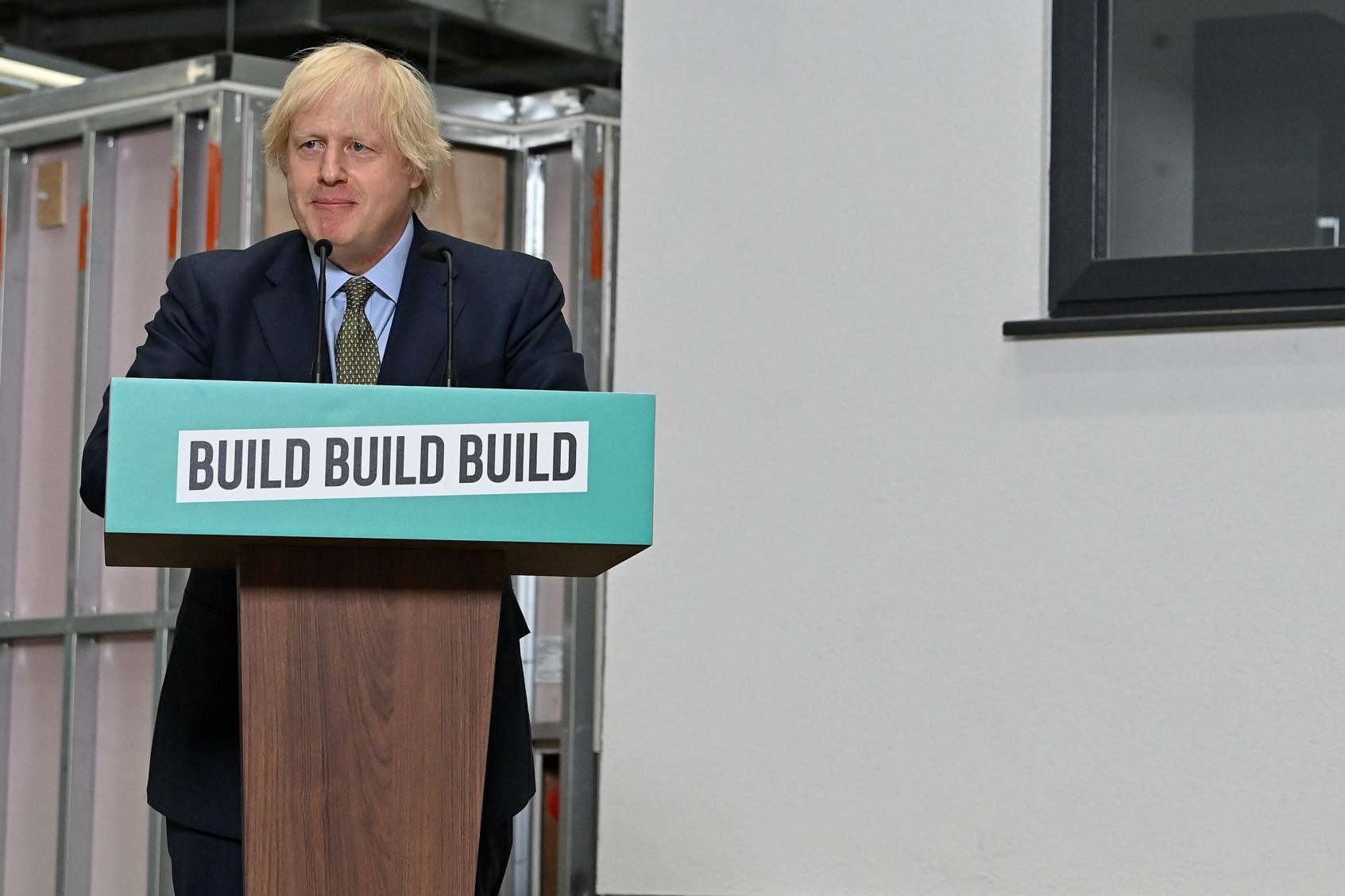First ‘take back control’, now ‘build, build, build’: Why are three-word political slogans so effective?
Boris Johnson’s ‘build, build, build’ does not just echo Tony Blair’s ‘education, education, education’ – it follows the law of three-part lists, writes John Rentoul


The prime minister obviously enjoyed his latest slogan. “We will build, build, build – build back better; build back greener; build back faster.” He delivered it as a kind of free-form poem or performance art in his big speech in Dudley, a town with two marginal seats both now held by the Conservatives and a council split between 36 Labour and 35 Tory councillors.
It seems like a simple skill, but it is part of the genius of Dominic Cummings, Johnson’s chief adviser, that he can distil politics to a three-word slogan. In the 2016 EU referendum, it was “Take Back Control”. In the 2019 election it was “Get Brexit Done”.
It was said that these phrases came out of focus groups, as if it were just a matter of commissioning the right research and having the slogan drop, fully formed, onto Cummings’s desk. But in practice it takes skill to pick up on the phrases that get randomly recruited swing voters nodding along in group discussions.
Now it seems that Cummings has done it again with “build, build, build”, the phrase that sums up Johnson’s post-Covid programme. It is simple – almost cartoonish in its simplicity – but it conveys the message and has been reported and repeated by journalists, even as they try to analyse the reheated and sometimes unconvincing policies that lie behind it.
This phrase echoes the rhetorical device deployed by Tony Blair in his 1996 Labour conference speech: “Ask me my three main priorities for government, and I tell you: education, education and education.” In itself, this was a variation of an old rule of speechmaking. Max Atkinson, the analyst of modern political rhetoric, identified three-part lists and two-part contrasts as the basic building blocks of effective communication.
The two-part contrast is the simplest: “Ask not what your country can do for you…” But three-part lists are a good way of taking an audience through the substance of a speech, and Jonathan Powell, Blair’s chief of staff, thought of a way of playing with that rule to repeat the same word as each of his three priorities.
It was a slogan that resonated over the years. It became so emblematic of New Labour’s schools policy that Andrew Adonis, the crusading Blairite minister, used it as the title of his 2012 book about it.
David Cameron used a variant of the device, saying in 2006, the year after he became leader of the opposition: “Tony Blair explained his priorities in three words: education, education, education. I can do it in three letters: N, H, S.” But it is the repetition of the same word that gives memorable emphasis.
Three-word slogans have a long history. The French revolutionaries were inspired by “Liberty, equality, fraternity”. Another New Labour effort was “Forward Not Back”, the slogan for the 2005 election, possibly not so memorable but it served its purpose. “Yes We Can” was Barack Obama’s more inspiring formula in 2008 and 2012. Donald Trump showed he could make it work for the other side with “Lock Her Up”.
At least the prime minister’s latest triplet is, literally, more constructive than that.
Join our commenting forum
Join thought-provoking conversations, follow other Independent readers and see their replies
Comments
Bookmark popover
Removed from bookmarks